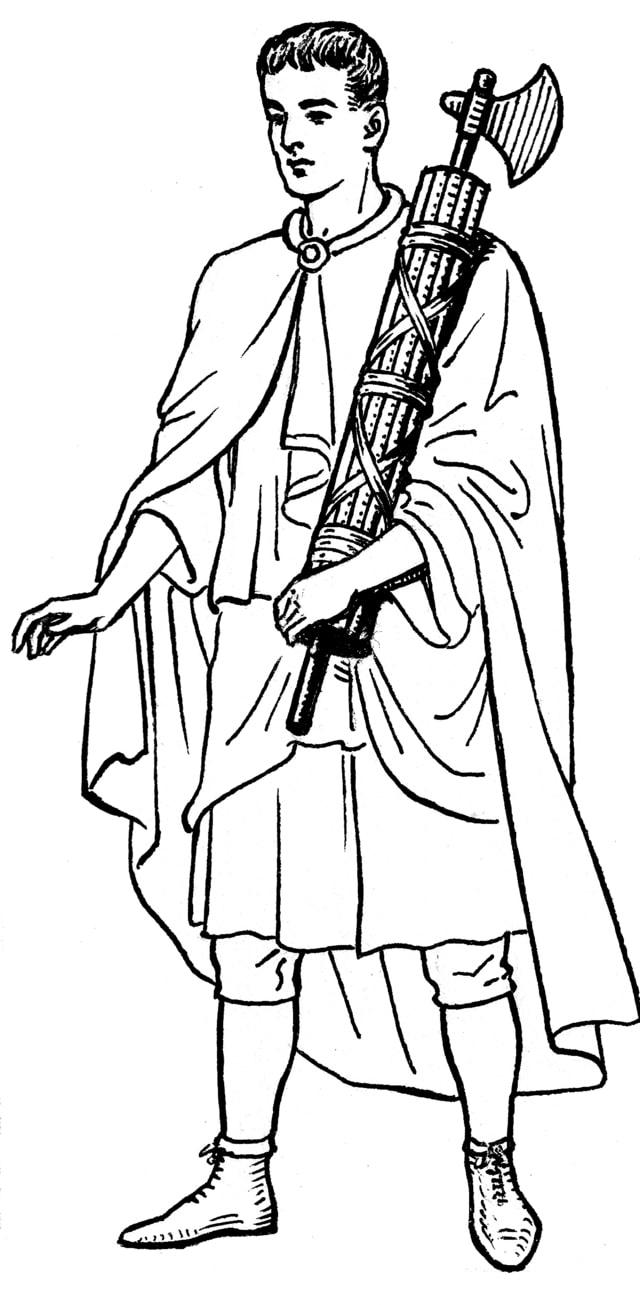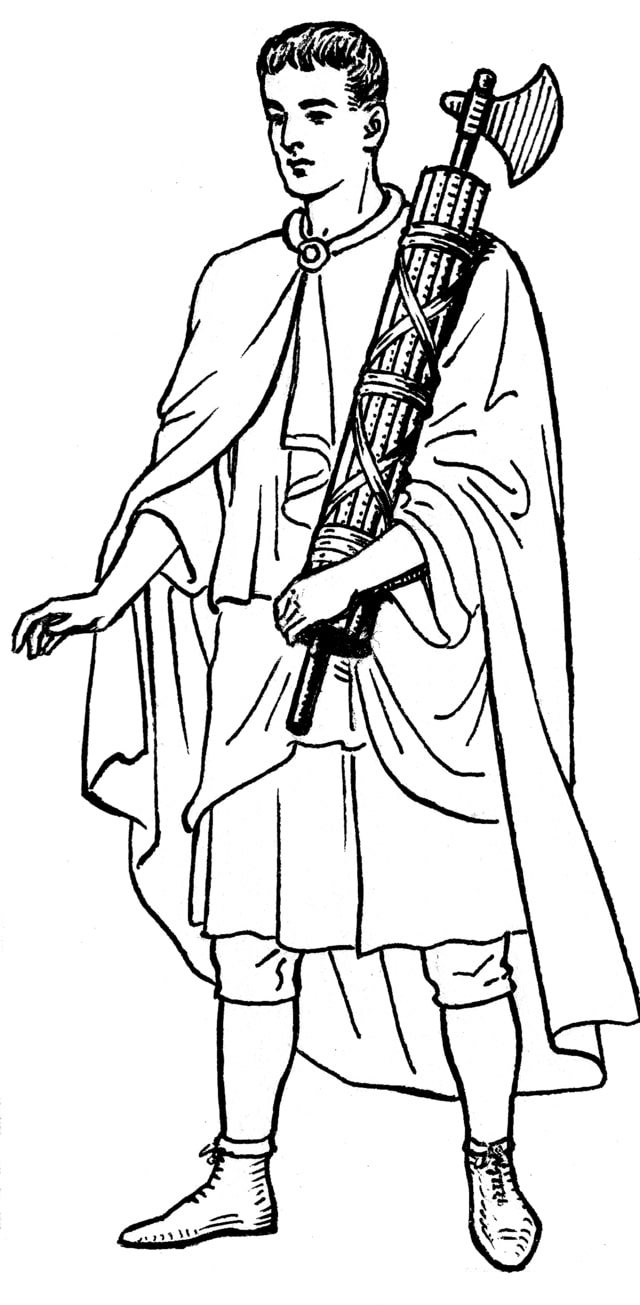

Photo Credit:Pearson Scott Foresman, Public domain, via Wikimedia Commons
Pearson Scott Foresman, Public domain, via Wikimedia Commons
I unequivocally agree; maybe these lefties might actually learn a thing or two about the evils of leftism.I thought they’d never ask!
I consider myself a fairly accommodating person, but when I heard James Grossman, Executive Director for the American Historical Association, say that if Florida were going to teach about the “evils of communism” then it better teach about fascism too, I couldn’t agree more, and I couldn’t be happier to oblige and outfit Mr. Grossman (and anyone else who needs it) with a primer of sorts, covering what fascism actually is, and where we actually see it.
But first the context, from a HuffPost report:
Florida Schools Must Teach ‘Evils Of Communism,’ Ron DeSantis Orders
A new law requires K-12 schools to teach how communist ideologies ‘conflict with the principles of freedom and democracy.’
…
‘If our goal is to help students learn about threats to freedom and democracy, why are we not also requiring that they learn about fascism?’ AHA Executive Director James Grossman told HuffPost.
(This is going to be fun.)
The word “fascism” derives from the latin fasces (plural of fascis), which was an instrument of punishment and death of ancient Rome; it is a collection of rods bound together as the support for the ax affixed at the end. See below:
<img alt="Pearson Scott Foresman, Public domain, via Wikimedia Commons" captext="Pearson Scott Foresman, Public domain, via Wikimedia Commons” src=”https://conservativenewsbriefing.com/wp-content/uploads/2024/05/american-historical-association-if-florida-teaches-about-communism-then-it-better-teach-fascism-too.jpg”>
Image: Public domain.
Wikipedia notes this:
The fasces, as a bundle of rods with an axe, was a grouping of all the equipment needed to inflict corporal or capital punishment. In ancient Rome, the bundle was a material symbol of a Roman magistrate‘s full civil and military power, known as imperium.
Britannica iterates that the tool signified the “penal power” of the state; the ADL adds this:
The symbol dates to ancient Rome, whose leaders used it as a symbol of authority and power. This symbolism long survived the Roman Republic and Roman Empire, becoming an element of heraldry as well as a symbol of governmental authority.
According to historian Anthony J. Marshall, while the fasces was largely symbolic, it did actually serve as a “portable kit for flogging and decapitation.” Marshall also writes this:
Since they [fasces] were so brutally functional, they not only served as ceremonial symbols of office but also carried the potential of violent repression and execution.
…
[T]he fasces continued as both symbol and instrument of executive power [emphasis added].
As you can see, the overarching theme represented by the fasces is strong, centralized, government authority, and the capacity of that government to inflict a brutal death upon its citizens—so it should come as no surprise to learn that Benito Mussolini’s movement adopted the executioner’s tool as a political logo, and used it as a basis to create the new term “fascism.” From an essay at the Oxford University Press’s Academic Insights for the Thinking World:
In November 1914, when Benito Mussolini, then prominent as a revolutionary socialist, tried to mobilize popular opinion for Italy to intervene in World War I, he gave the name ‘Autonomous Fasci of Revolutionary Action’ to his disparate supporters. The term ‘fascio’ (plural ‘fasci’) was then common in Italy’s political lexicon, in its core meaning of ‘bundle’, to denote a loosely-organized group grounded in a common ideology.
…
Yet it was only after the conclusion of World War I that one of the political fasci used the old Roman symbol of the fasces—a bundle of wooden rods and a single-bladed axe with leather straps—to express its identity, and had its members proudly lay claim to the somewhat pejorative moniker ‘fascisti.’ The take off point was Milan’s Piazza San Sepolcro on 23 March 1919, when Mussolini relaunched his war movement as a paramilitary group, the ‘Italian Fasci of Combat.’
…
‘Use of the historical Roman emblem to a stunning degree helped valorize Mussolini’s violent methods.’
…
Some months after San Sepolcro, we find Mussolini vigorously promoting the symbol of the fasces, first to brand his ‘Fascist Bloc’ in the Italian general election of 16 November 1919.
Now, the political movements of the 20th century identified as “fascist” vary greatly, but the common vein among them is the militaristic and centralized power of a big and strong national, or federal government, and violent suppression of opposition—all that was represented by a tool used to flog people and sever human heads, carried by agents of the Roman state in a display of dominance—but nothing about that can be associated with the limited government principles of American conservatism, or even find association with the “far-right” end of a political spectrum. Because, the further right you go, the less government you get, all the way to the point of anarchy, or no government. So, to imply that fascism somehow falls on the “right” would be terribly inaccurate, and if it’s coming from the classroom, or even a historical association, would be terribly irresponsible. Right, Mr. Grossman? Because that’s how I take his jab at Florida’s anti-communism legislation.
And, unfortunately, the fasces is seen throughout well-known structures in the United States, so I agree with Mr. Grossman, it is a threat to freedom to avoid teaching about the dangers of fascism, and we can’t let it slide, because it’s already here, sometimes lurking in plain sight. Here’s this, also from the ADL:
The United States draws a considerable amount of its own symbology from classical antiquity, including the fasces, which has been used as a symbol by military units, government agencies, and even the House of Representatives.
The symbol can be found on the front of Abraham Lincoln’s armrests at the Lincoln Memorial, the Oval Office, and apparently almost every federal building built by Franklin Roosevelt’s New Deal programs. Here’s this, from Rutgers professor T. Corey Brennan, via The Washington Post:
‘Washington [D.C.] is a bonanza for fasces-spotting,’ Brennan said. ‘It’s hard to see any federal building from the New Deal period that doesn’t have the fasces in some place.’
Now, it seems to me like there would be better symbols to represent American ideals than a brutal punishment tool for scourging and decapitation from pagan Rome, but I’m also not the type of girl who believes in a big federal government forcing submission through violence.
And not only do we see this violent anti-freedom ethos represented in our architecture, but it’s overtly evident in our society too. We see mobs of ironically-named “anti-fascists” mercilessly beating their political opponents for supporting Donald Trump, and we see the political pseudo-elites use the military to erect razor wire fencing around inaugural proceedings, to put the any would-be dissenters in their place… in fact, we see it from the Democrats and the movements they support.
I have a feeling that Mr. Grossman opened a can of worms he probably would have preferred to leave undisturbed?






